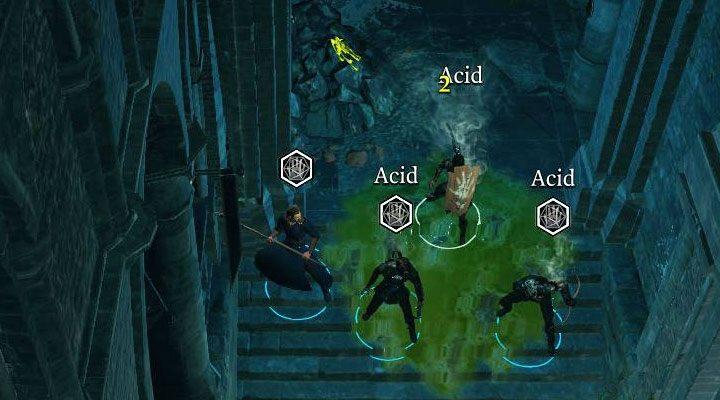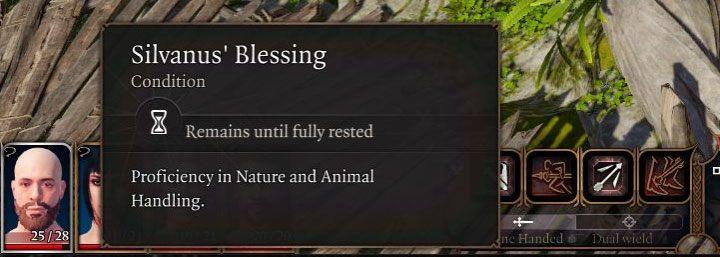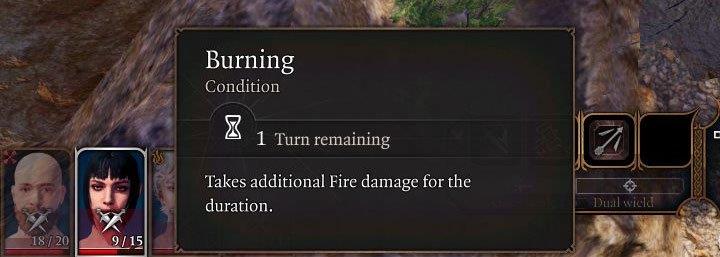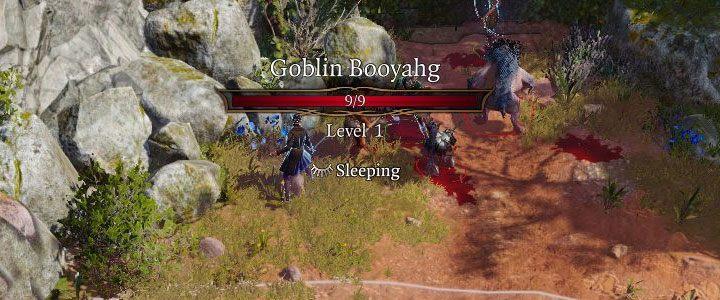In the intricate world of Baldur’s Gate 3, understanding character statuses can mean the difference between triumph and defeat. As players navigate through a myriad of spells, environmental interactions, and combat scenarios, they must decode a complex web of positive and negative status effects that can enhance abilities or hinder performance. This guide will unravel the mysteries behind these statuses, detailing how to read and interpret them effectively, ensuring that every adventurer is well-equipped to face the challenges that lie ahead. Whether you’re buffing your allies or crippling foes, mastering these mechanics is crucial for strategic gameplay in this epic RPG.
There are many ways in BG3 in which a single character or the entire party can receive status effects. The most common situations in which you can receive a status are:
- Using a spell/weapon attack that can inflict a status effect. These can be attacks with weapons that inflict elemental damage or spells that make the attacked character fall asleep.
- Interacting with elements of the environment. This can be, for example, standing on flames, touching an object that grants a blessing, or slippery ground.
- Activating a trap.
Statuses imposed on party members can provide positive bonuses to statistics (example in picture 1) or weaken them (example in picture 2).
You can check information about the status of party members by hovering the cursor over the icons next to their thumbnails. In addition to information about the type of status, you will also know how long it lasts. Statuses can last, e.g. for a certain number of turns or until the next short or long rest. There are also permanent statuses, i.e. ones that remain forever or until you perform a specific action (e.g. drinking an antidote).
What are the most common status effects in Baldur’s Gate 3
In Baldur’s Gate 3, status effects play a crucial role in shaping combat dynamics, providing both advantages and disadvantages to characters. Here are some of the most common status effects players will encounter:
Positive Status Effects
- Hasted: Increases movement speed and allows an additional action on your turn.
- Invisible: Grants advantage on the first attack and makes the character untargetable until they attack.
- True Strike: Provides advantage on the next attack roll against a target.
- Silvanus’ Blessing: Grants proficiency in Nature and Animal Handling.
Negative Status Effects
- Blinded: Ranged attacks have a range of only 15 feet, and attackers have advantage against the blinded character.
- Prone: The character must use half their movement to get up and has disadvantage on Strength and Dexterity saving throws.
- Poisoned: Disadvantage on attack rolls and ability checks.
- Stunned: The character cannot move or take actions, making them vulnerable to attacks.
Other Notable Conditions
- Sleeping: The character is incapacitated until they take damage or someone uses an action to wake them up.
- Entangled: The character cannot move, and attackers have advantage on their rolls against them.
- Shocked: The character cannot take reactions and suffers disadvantage on Dexterity checks.
These status effects can significantly influence strategy during battles, making it essential for players to understand and utilize them effectively to gain an upper hand against foes .
Which status effects are the most dangerous for my party
In Baldur’s Gate 3, certain status effects can pose significant dangers to your party, potentially altering the course of battles. Here are some of the most perilous status effects to watch out for:
Most Dangerous Status Effects
- Stunned: A stunned character cannot take actions or reactions, making them vulnerable to attacks. This status effectively removes a character from combat, allowing enemies to focus on other targets without fear of retaliation.
- Blinded: Characters affected by blindness suffer disadvantage on attack rolls and have severely limited range for ranged attacks and spells. This can cripple a party’s ability to deal damage effectively, especially in critical moments.
- Poisoned: This status inflicts disadvantage on attack rolls and saving throws, significantly reducing a character’s effectiveness in combat. The cumulative effects of poison can also lead to gradual health loss over time.
- Prone: Being prone imposes disadvantage on melee attacks and requires half of the character’s movement to stand up. This status can be particularly dangerous when combined with enemies that deal area damage or have multiple attacks.
- Hypnotized: Characters under this effect cannot move or take actions, leaving them completely vulnerable. This status can disrupt strategies and leave the party exposed to enemy attacks.
- Enwebbed: Similar to being prone, this status prevents movement and imposes disadvantage on attack rolls while granting advantage to attackers. It can effectively immobilize a character, making them an easy target.
Additional Considerations
Other notable effects include Bleeding, which causes damage at the start of each turn, and Silenced, which prevents spellcasters from using their abilities. Both can severely limit a party’s options in prolonged encounters.
Understanding and managing these dangerous status effects is crucial for maintaining your party’s effectiveness and survivability during challenging encounters in Baldur’s Gate 3.



